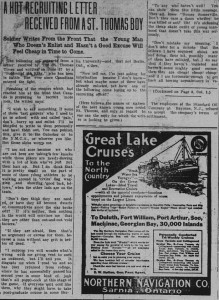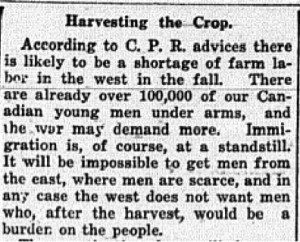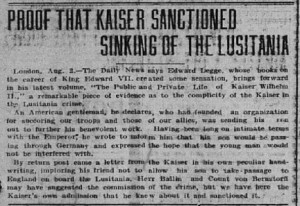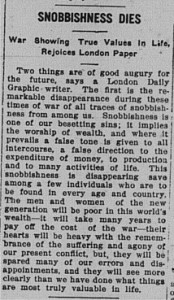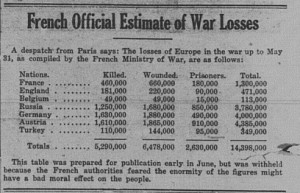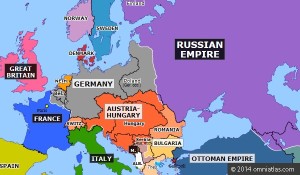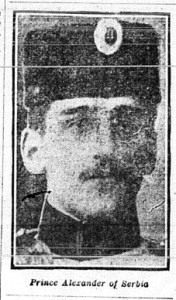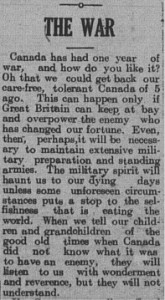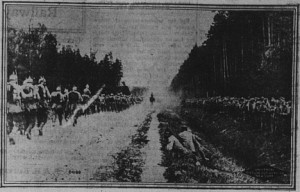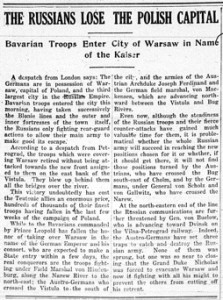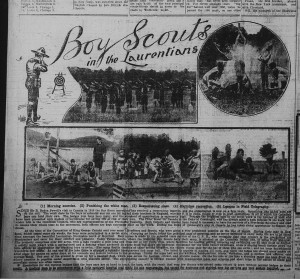The Berlin Daily Telegraph published a letter which a soldier sent from the front. The soldier was from St. Thomas, Ontario (south of London) and wrote his letter in an effort to convince more of his peers to join him overseas.
He was unimpressed with those who considered him a friend or who wished him luck as he boarded the train yet did not join up themselves. He considered them cowards and said that fear was no excuse, “because a man without any grit is better off dead.” As far as he was concerned, anyone of his “friends” who did not enlist with very good reason was “Cheap! Cheap! Cheap!”
Demonstrating an alternative strategy to this soldier’s goading, an article in the Telegraph the day before promised great comradery to anyone who did join the ranks, especially if they applied for training through Canadian universities which had a program to provide proper military training to young men.
(“A Hot Recruiting Letter Received from a St. Thomas Boy,” The Berlin Daily Telegraph, 27 July 1915; “Opportunity for Young Men to Join Ranks,” The Berlin Daily Telegraph 26 July 1915.)